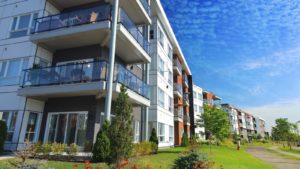Navigating the Complex Landscape of Regulatory Standards for Cyber Security in Multi-Dwelling Residences to Ensure Occupant Safety and Data Protection
Wiki Article
In the current world, numerous people reside in multi-unit units, including apartment complexes and condominiums. Such locations frequently share shared networks for internet and other amenities. While this arrangement can be convenient, it also brings up important concerns about network safety and compliance standards. Guaranteeing the safety of tenants and safeguarding their information is crucial. This piece will examine the complex landscape of regulatory standards for system safety in multi-dwelling buildings, focusing on how these guidelines help keep residents safe and protected.
A of the key regulatory standards that pertain to network safety is the General Information Privacy Regulation (GDPR). This regulation is intended to safeguard individual information and privacy for persons within the European Union. Although it mainly pertains to businesses functioning in the EU, its tenets can affect procedures in other areas as well. For multi-dwelling units, complying to GDPR requires establishing strong information safeguarding protocols. This includes ensuring that tenants' personal information is collected, kept, and handled safely. By following these standards, property managers can assist build confidence with residents and guarantee their data is safe from illicit access.

A further important guideline is the Healthcare Insurance Portability and Accountability Law (HIPAA), which safeguards sensitive patient data in the healthcare sector. In multi-unit units, particularly those that offer healthcare services or have tenants with particular health needs, compliance with HIPAA is crucial. This requires that any health-related information collected from residents must be maintained private and secure. Building administrators must ensure that their network infrastructures are configured to prevent data leaks and illicit intrusion. By doing so, they not only comply with regulatory obligations but also promote a secure residential space for all tenants.
In addition to GDPR navigate to this web-site and HIPAA, the Payment Card Industry Data Protection Standard (PCI DSS) is a further critical regulatory standard. This guideline is especially important for multi-unit units that accept debit card transactions for lease or services. PCI DSS specifies security protocols that must be implemented to safeguard cardholder data. This includes securing confidential data and regularly monitoring network safety. By adhering to PCI DSS standards, building managers can reduce the threat of information leaks and safeguard residents' financial information, which is vital for upholding their confidence and safety.
Finally, it is crucial for multi-dwelling buildings to remain informed on regional and national regulations regarding network security. Laws and guidelines can change, and remaining informed is crucial for compliance. Building managers should frequently assess their safety protocols and practices to make sure they meet up-to-date standards. This preventive strategy not only assists in upholding compliance but also enhances the overall security of the network. By prioritizing tenant security and data safeguarding, multi-unit buildings can create a safe residential space that encourages trust and peace of mind among tenants.
To summarize, traversing the intricate environment of regulatory guidelines for system safety in multi-dwelling units is essential for guaranteeing resident security and data protection. By understanding and applying standards like GDPR, HIPAA, and PCI DSS, property managers can create a secure environment for their residents. Staying informed about local laws and frequently reviewing safety practices further enhances this commitment to safety. Ultimately, a strong focus on compliance not only protects residents but also builds a feeling of community and confidence within multi-unit units.